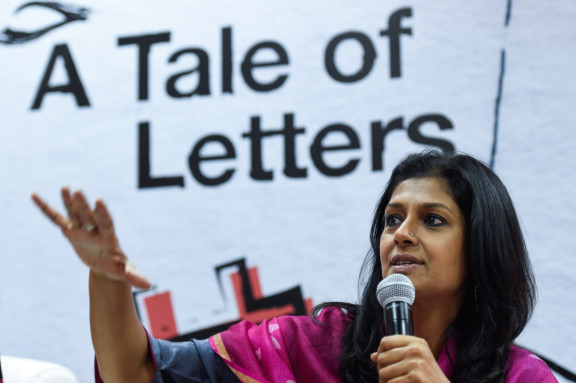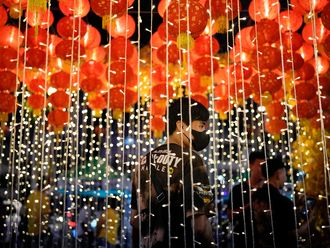
Sharjah: Reality is not always beautiful and it makes more people uncomfortable than not, but not expressing it unfiltered, as it is, will not make us better human beings, says Indian filmmaker Nandita Das, quoting the protagonist of her latest movie Manto.
Speaking at a packed hall on the third night of the Sharjah International Book Fair (SIBF), actor-director Das, who is known to portray the bitter truths of society through her films, said that there is no better time to speak out and express the truth than now, when the free-spirit and reality that Sadat Hasan Manto stood for is being so brutally trampled in different forms everywhere.
“Manto is admired even 70 years after his death by so many people because he had this very rare sensitivity for the marginalised and less represented sections of the society. But more importantly he was special because he wrote unfiltered truth, as he saw it and he would often say that hiding the reality will not make us better human beings,” said Das as she opened her talk explaining why she chose to make the biopic about the controversial Pakistani writer.
Sadan Hasan Manto died in 1955 at a relatively young age of 42 after kicking up a literary storm in the Indian subcontinent with more than 300 short stories, dozens of screen plays, radio plays and essays that set the stage on fire and rose more than a few eyebrows.
Manto’s raising of the hitherto taboo subjects made him the subject of several legal cases and also led him to spend some time in prison and even in a mental institution and Das feels the issues he raised are as relevant as they were 70 years before.
“Reality is not always beautiful and when you expose the ugly realities of the society, it makes many people very uncomfortable, that’s what happened when Manto wrote about these issues and that’s what is happening now. Manto went beyond the identity of religion, class, nationality and caste, all the things that are still dividing people today, and that is why his stories are still so relevant,” added Das, who has acted in more than 40 films and directed two.
Das’s second directorial venture not only tells the story of Manto, but also reflects on the stories he wrote mostly during the period between 1946 and 1950, when the partition of the subcontinent on religious lines set the region aflame.
However, Das insists that her movie is more about the celebration of writers, which rarely happens.
“This is only the second Hindi movie on the life of a writer and incidentally the first was written by Manto himself on the legendary Indian poet Mirza Galib, for which he won the first National Award in 1955, in the year he died,” said Das.
Das called on people to celebrate free spiritedness, which Manto represented, urging her followers to follow their conviction and beliefs under all circumstances, in order to find courage to be truthful.











